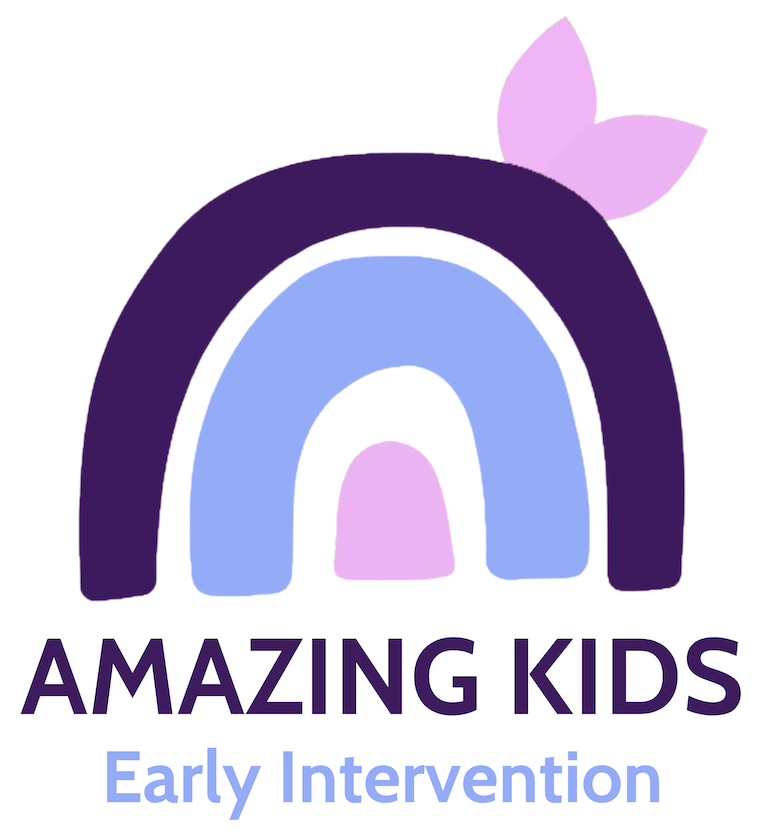Every child requires a range of skills and abilities to navigate through daily activities with ease and confidence. For children with Autism Spectrum Disorder (ASD), mastering daily living skills, such as self-care, organisation, and time management, can be particularly challenging due to sensory sensitivities, social communication difficulties, and rigid routines. However, with the right support and early intervention, these vital daily living skills can be nurtured and enhanced, granting young autistic children greater independence and self-esteem as they grow.
Amazing Kids in Melbourne is committed to supporting the development of daily living skills in young children with autism by using the Early Start Denver Model (ESDM), an evidence-based early intervention approach tailored to address the unique needs and strengths of each child. The ESDM incorporates relationship-building, individualised intervention plans, naturalistic teaching strategies, and parent coaching to create an integrated framework for maximising the growth and development of children on the autism spectrum.
In this informative blog post, we will shed light on the significance of daily living skills for autistic children under five years old, discuss the ways in which our dedicated therapists at Amazing Kids in Melbourne implement ESDM principles to support this important aspect of development, and offer practical insights for parents to facilitate their child’s acquisition of daily living skills at home. By focusing on nurturing these essential abilities, we can help to empower your amazing child to lead a fulfilling and independent life, equipped with the necessary tools to navigate the world around them with confidence.
The Importance of Daily Living Skills for Autistic Children
Daily living skills encompass a wide range of abilities necessary for autonomy and participation in everyday activities. For children with ASD, enhancing these skills is essential, as they:
1. Promote independence: Acquiring daily living skills allows children to perform tasks independently, build self-esteem, and overall enhance their quality of life.
2. Foster social inclusion: Nurturing daily living skills helps children take part in school, family, and community activities, leading to increased social opportunities.
3. Facilitate transition to adulthood: Developing these skills early on supports the transition to adulthood, increasing the chances of successful outcomes in education, employment, and living arrangements.
ESDM Early Intervention Techniques for Daily Living Skills
The Early Start Denver Model (ESDM) is a relationship-based, comprehensive early intervention approach that supports the unique developmental needs of young children with ASD. Our therapists at Amazing Kids in Melbourne utilise ESDM techniques to support daily living skills development, which include:
1. Individualised assessment: ESDM involves a thorough assessment to understand the child’s strengths, interests, and areas of need to create tailor-made intervention plans.
2. Relationship-building: Establishing positive relationships with the child through joint activities, routines and play experiences to build trust and reinforce learning.
3. Naturalistic teaching strategies: Embedding learning opportunities within everyday situations and activities, making intervention more relevant to daily life.
4. Parent coaching: Coaching and empowering parents with the knowledge and resources to support their child’s daily living skills development at home consistently.
Daily Living Skills Development at Amazing Kids in Melbourne
Our dedicated therapists at Amazing Kids in Melbourne are passionate about supporting the acquisition of daily living skills in children with ASD through ESDM early intervention techniques. Here’s how we approach this essential area of development:
1. Comprehensive assessment: Assessing each child’s strengths, interests, and needs related to daily living skills is the starting point for our intervention process.
2. Goal setting: We work closely with families to set goals focused on improving daily living skills that also consider the child’s interests and abilities.
3. Tailored intervention plans: We develop highly individualised plans to enhance daily living skills by incorporating routines, naturalistic teaching, and visual supports.
4. Collaborative teamwork: Our therapists work in collaboration with families, teachers, and other professionals to ensure consistency and optimal support across all environments.
Tips for Parents to Support Daily Living Skills at Home
Parents play a critical role in nurturing daily living skills for their autistic children. Here are some key strategies you can incorporate at home:
1. Establish routines: Consistency and predictability through daily routines support skill development and reduce anxiety.
2. Break tasks into smaller steps: Breaking tasks into manageable steps makes it easier for the child to understand and complete them.
3. Use visual supports: Visual schedules and social stories can help your child understand daily activities and upcoming changes.
4. Offer opportunities for practice: Give your child opportunities to practice daily living skills in various environments, ensuring they acquire and generalise these abilities.
Empower Your Child with Daily Living Skills Through ESDM Early Intervention
As a parent, you can further strengthen these skills at home by providing consistency, visual supports, practice opportunities, and breaking tasks into smaller steps. Together, we can empower your amazing child to reach their full potential and navigate the world around them with confidence and self-sufficiency.
At Amazing Kids in Melbourne, we are dedicated to supporting young children with autism in acquiring essential daily living skills that will set the foundation for an independent and fulfilling life. By working with a certified ESDM therapist from our team, we can cater to the unique developmental needs of each child and provide a comprehensive, supportive environment for learning.
